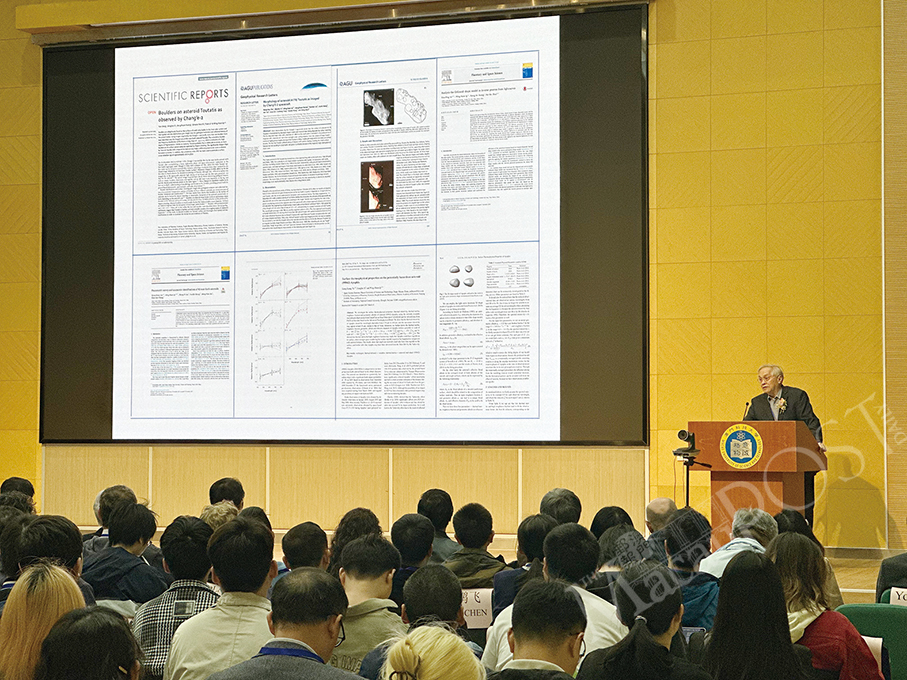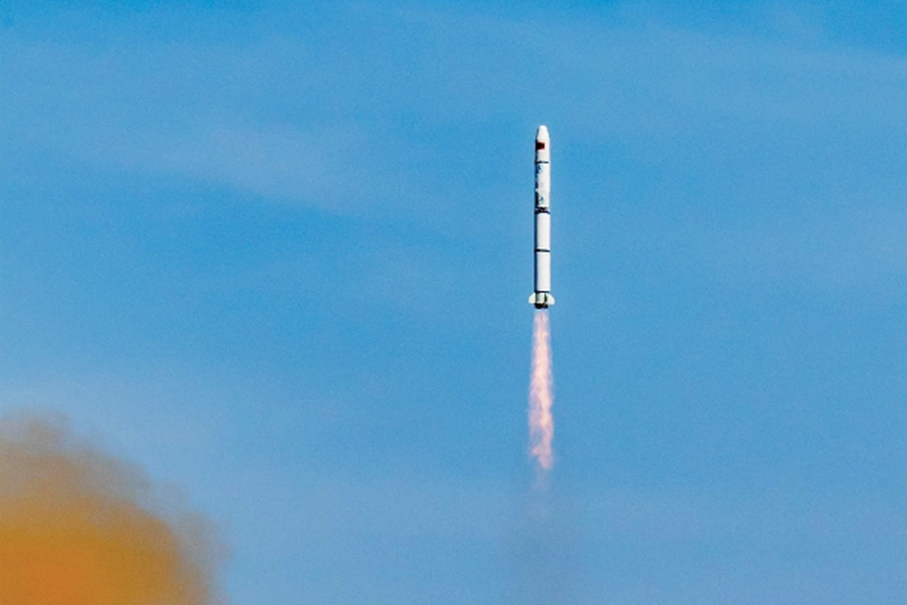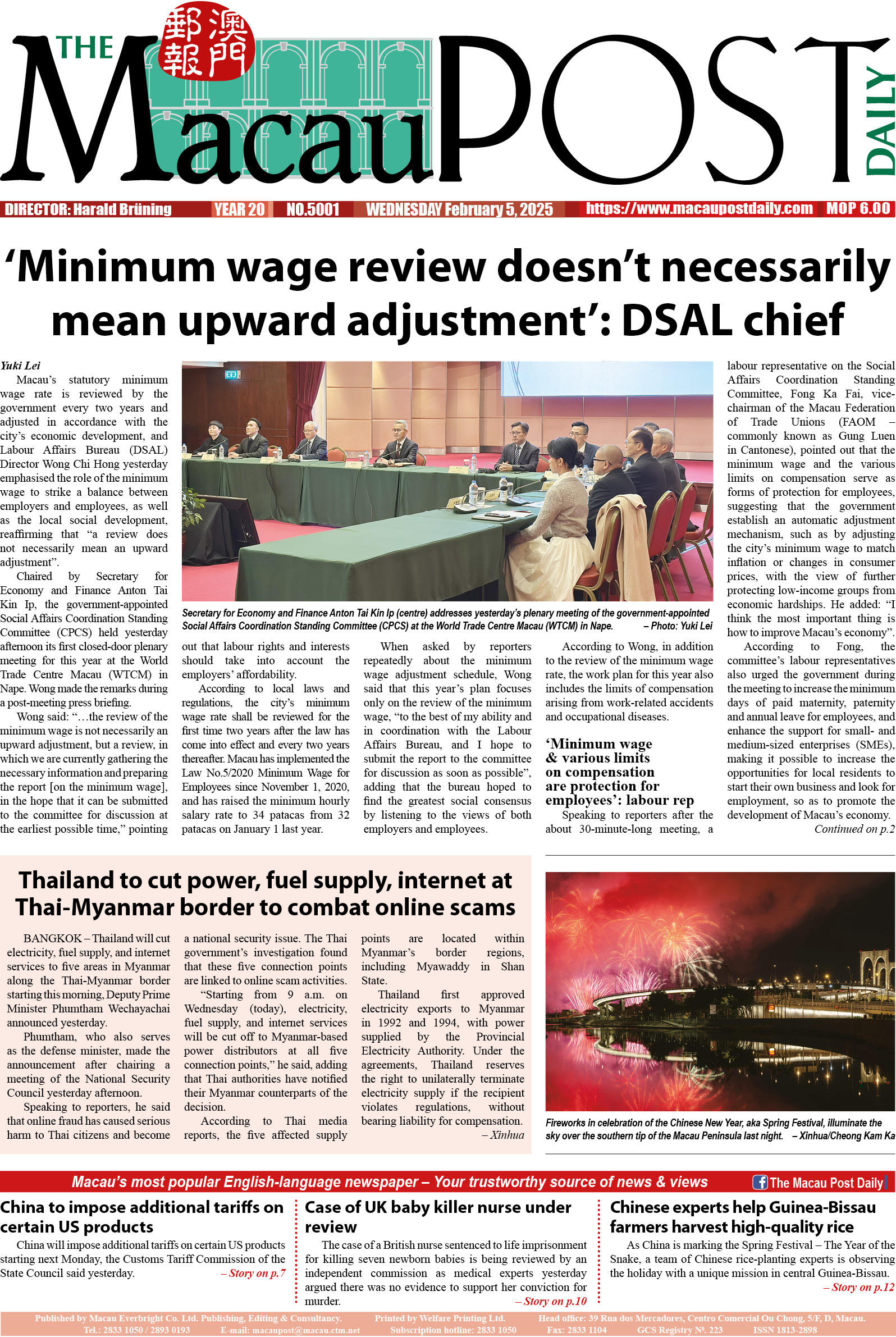A three-day Macau International Forum on Space and Planetary Sciences kicked off yesterday at the Macau University of Science and Technology (MUST), with the participation of nearly 200 scholars from all over the world – and Zheng Guan Wei, member of the Administrative Committee of the Macau Science and Technology Development Fund, underlined in his opening remarks that “space exploration is a complex and challenging task that requires countries and regions to work together to overcome difficulties”.
Jointly organised by the private university and the Macau Association for the Promotion of Science & Technology (MAPST), with participants from China (mainland, Hong Kong, Taiwan, and Macau) as well as Germany, Italy, India, Japan and the US, the forum is “an important academic event to inspire the scientific community and to strengthen international cooperation and exchanges,” the organisers said in a statement.
The forum is being held by the MUST Space Science Institute/State Key Laboratory of Lunar and Planetary Sciences and sponsored by the government-run Science and Technology Development Fund (FDCT).
“Great achievements do not happen overnight, [but] from long-term accumulation and relentless effort,” Zheng said, pointing out that the ongoing forum, featuring the latest findings by some of the participants in multiple frontier fields such as planetary exploration, observations of solar system objects, sample return missions from asteroids, searches for extraterrestrial life signs, and studies of the lunar surface, “showcases Macau’s enthusiasm for cutting-edge science and technology”.
Tam Kwong Hang, MUST’s vice-president, said in his speech: “Today, Macau stands as a modern international metropolis, not only celebrated for its cultural heritage but also emerging as a significant player in the realm of scientific and technological innovation”, adding he expected the forum to “stimulate” the young generation’s interest in scientific research.
Concerning Macau’s participation in the development of the nation’s space industry, Zong Qiugang, director of the MUST Space Science Institute, told reporters on the sidelines of the forum that “MUST is now deeply involved in a number of the nation’s space science development programmes, in addition to its “Macao Science II” project, the institute is currently striving, in conjunction with the mainland, to participate in the Chinese Hα Solar Explorer project*, hoping to “make some concrete contributions to the nation’s space development, such as building a spacecraft designed and built by Macau”.
*According to the Poe chatbot, the Chinese Hα Solar Explorer (CHASE) is a space mission developed by China to study the Sun, particularly its solar activities and phenomena. Launched in 2022, CHASE is equipped with advanced instruments designed to observe the Sun in the H-alpha wavelength, which is a specific part of the red spectrum of light emitted by hydrogen atoms.
H-alpha is a specific spectral line of hydrogen that occurs at a wavelength of 656.28 nanometres in the red part of the visible spectrum. It is produced when an electron in a hydrogen atom transitions from the third energy level to the second energy level, releasing energy in the form of light.

Prof. Ip Weng Huen from Taiwan, who was born in Macau, addresses yesterday’s opening ceremony of the three-day Macau International Forum on Space and Planetary Sciences at the private Macau University of Science and Technology (MUST) in Taipa. – Photo: Yuki Lei






